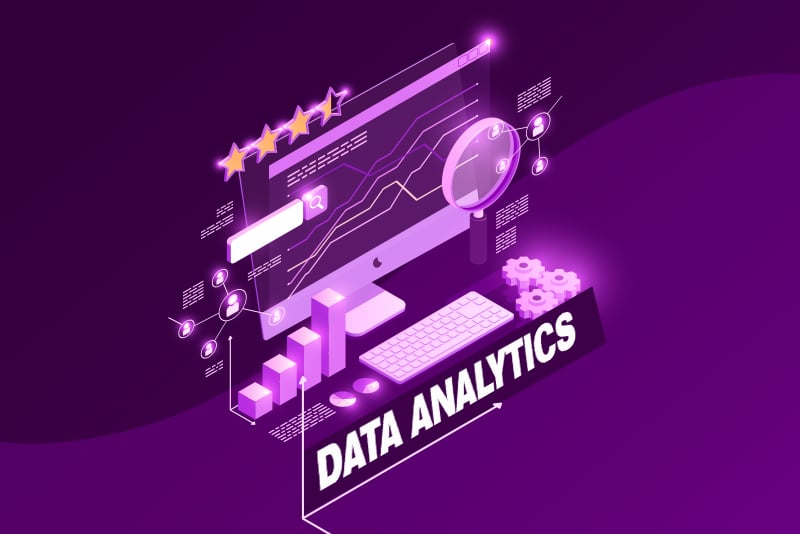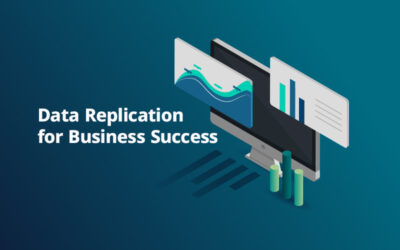Data is a strategic asset and analytics helps businesses make the most of their data to drive growth. Data conversion services help businesses leverage data analytics by standardizing and improving the accuracy of their data and automating data processing. Garter notes that the data analytics market is growing at a compound annual rate of nearly 30%, and predicts that by 2026, 65% of B2B sales organizations will switch from intuition-based to data-driven decision making. Businesses need to monitor data analytics market trends to remain relevant, make informed decisions, and stay ahead of competition.
Top Data Analytics Trends for 2023
- Democratization of analytics: Data analytics experts are focusing on achieving a model where all business units will have access to data and intelligent insights, according to a Forbes article. Data democratization is the basis of “self-service” analytics and focuses on making digital information accessible to even non-technical IT systems users. However, the democratized analytics model is costly and hard to set up and scale.
- Adoption of a data product mindset: Developing data product mindset is becoming increasingly important for businesses to achieve their overall business strategy. A data product can be used by itself or could be combined with other products to provide solutions to increasingly complex questions within an organization. Businesses will focus on packaging the data in a way that will help users utilize it more effectively. This involves creating a cohesive data product that combines the data, along with the tools and resources necessary for its utilization. Gartner predicts that large organizations will utilize more than one analytics or BI tool, and that 60% of organizations will blend components from various analytics solutions to build business applications that provide deeper insights about their data.
- AI tools will enable smarter management of unstructured data: Companies are continuing to collect increasing volumes of unstructured data. As current and new apps generate more data and the number of end users increase, it is critical for businesses to protect, analyze and streamline the data, while controlling costs and risks. In 2023, we are seeing an increasing focus on AI and machine learning (ML) technologies to organize, analyze, and optimize storage of this unstructured data.
- Data mesh strategy growing in importance: IBM defines a data mesh as “a decentralized data architecture that organizes data by a specific business domain-for example, marketing, sales, customer service, and more-providing more ownership to the producers of a given dataset”. The data mesh approach focuses on improving collaboration between people and technology and shared ownership of data, resulting in faster decision making, increased agility and competitiveness, and continuous improvement and innovation. To succeed with a data mesh strategy, organizations must be committed to treating data as a product and embracing a decentralized, self-service model for data management.
- Rise of a metadata-driven approach to data fabric: As the volume, type and velocity of data grows, organizations are finding it a challenge to manage and utilize information effectively. A data fabric links disparate data sources and allows data to flow seamlessly between systems, applications, and people. Metadata describes the characteristics of data, such as its structure, format, and meaning. A metadata-driven approach provides a deeper, more meaningful understanding of data across the enterprise. This allows organizations to manage data more effectively and extract its full potential.
- Edge computing: Organizations are moving to edge computing, a more decentralized computing model which processes, analyzes, and stores data at or near the source of the data, rather than in a centralized data center or cloud. The benefits of edge computing are: faster processing of data, improved data reliability, real-time data analysis and more actionable data for decision making, reduced bandwidth costs and congestion, increased data privacy and security, and better scalability.
Benefits of Monitoring Data Analytics Market Trends
Monitoring data analytics market trends is important for various reasons:
- Improves decision-making: Market intelligence can help businesses gain valuable insights into consumer behavior, market dynamics, and emerging technologies. Tracking these trends will help businesses make more informed decisions about their data analytics strategies.
- Helps businesses stay relevant: As the data analytics industry is constantly evolving, businesses need to keep up with the latest trends risk to avoid falling behind. Businesses can ensure that they remain relevant and up-to-date by monitoring market trends.
- Identifies new opportunities: Big data and analytics helps businesses find untapped markets and new opportunities for growth and innovation. Tracking market trends can help them take advantage of new trends and stay ahead of competitors.
- Drives product innovation: Trend analysis supports innovation. By analyzing current market trends, companies can get a clear picture of types of data analytics solutions that are in high demand and develop new products and services that cater to customer needs.
- Optimizes resource allocation: Business intelligence helps companies make better resource management decisions amid the growing market uncertainties. By tracking market trends, businesses can identify data analytics areas that are experiencing the most growth and investment. This can help prioritize their investments and fund the right projects that are likely to have the greatest potential for return.
Data analytics helps businesses make better decisions, increase efficiency, identify new opportunities for growth and innovation, track customer behavior and engagement, and create models that can predict future trends and outcomes. By helping organizations improve data accuracy and standardization, business process outsourcing companies support their data analytics activities and make it easier for them to draw insights from large volumes of data.
Say goodbye to data management challenges – whether it’s data entry, data cleansing, data conversion or document scanning, MOS assures best-in-class solutions!
Get your Free Trial Today!




